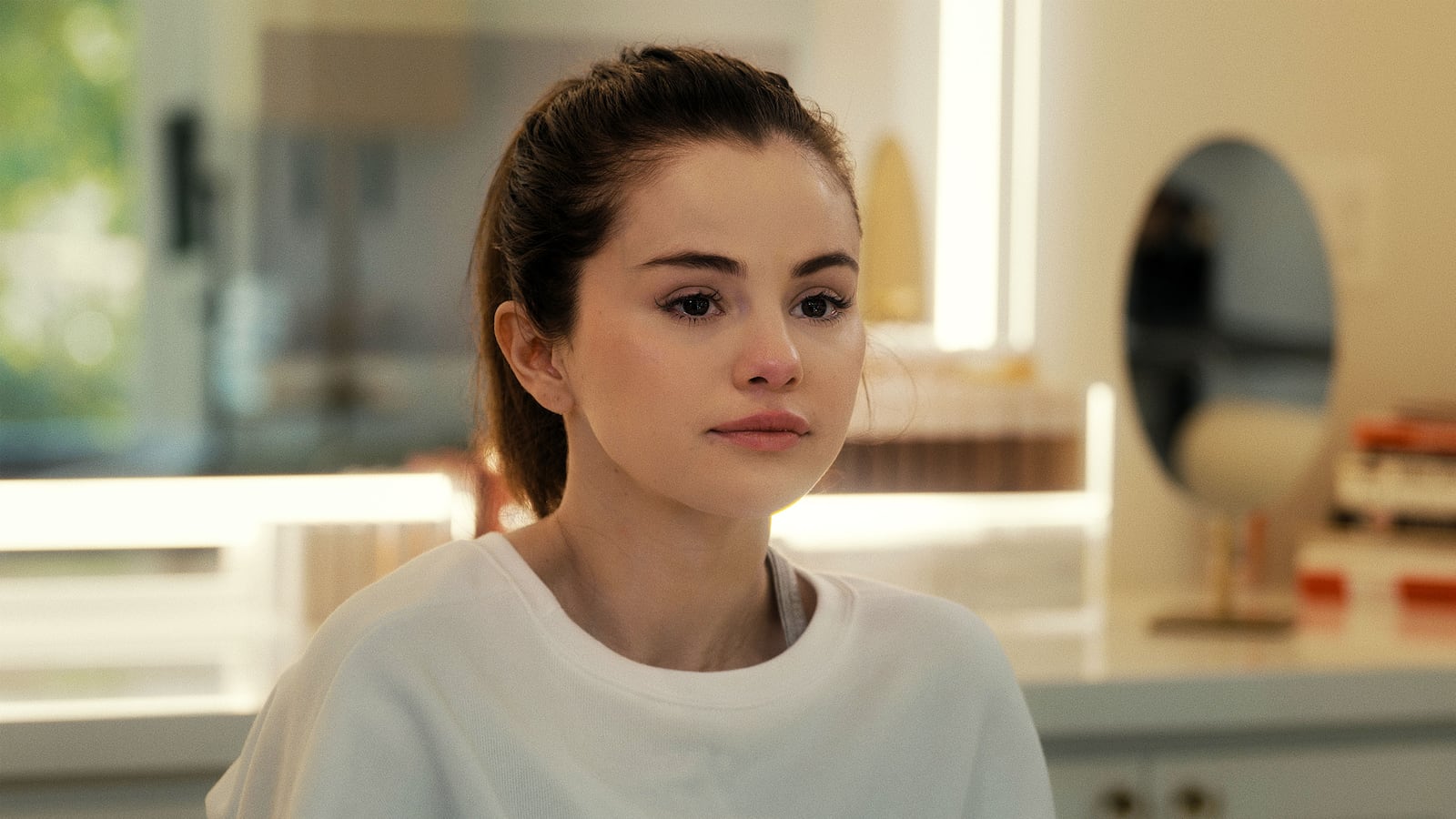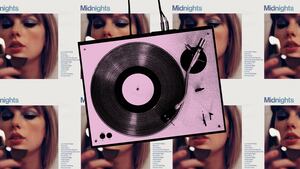Music documentaries are a dime a dozen these days. In just the past three years, a handful of A-list artists, including Billie Eilish, Taylor Swift, Jennifer Lopez, Travis Scott, and Ariana Grande have given fans behind-the-scenes access to tours, recording sessions, special performances, and other career highlights through various streaming platforms. In an Entertainment Weekly article about this phenomenon, journalist Marcus Jones theorized that, for today’s biggest musicians, “becoming a cinematic subject has all but replaced in-depth magazine cover stories and network-TV sit-downs as an avenue for artists to reveal themselves in a new light.”
That said, it was only a matter of time before Selena Gomez, a fairly private and sometimes press-averse pop star, would use the medium to her advantage—although, seeds for a documentary had been planted as early as 2015. After watching Madonna: Truth or Dare, Gomez recruited director Alek Keshishian, who also directed her “Hands to Myself” music video (and is her manager’s brother) to follow her around on the world tour for her second studio album, Revival. However, their plans came to a halt when Gomez ended the tour after 55 shows, citing depression and anxiety as a result of her lupus. In 2018, she was admitted into a psychiatric facility.
These bleak turning points would ultimately be the focus of Selena Gomez: My Mind and Me, out now on Apple TV+. The 90-minute documentary begins with troubling footage of the “Come and Get It” singer having emotional outbursts prior to the cancellation of her tour and resumes in 2019, after she’s been diagnosed with bipolar disorder. As implied in the title, the film helps fans understand the 30-year-old’s headspace over the past six years, as headlines about her physical and mental health have cast a shadow over her otherwise thriving career.
“Let me make you a promise,” she narrates at the start of the film. “I’ll only tell you my darkest secrets.”
How willing you are to believe this statement from one of the world’s biggest celebrities will shape your experience watching the documentary. Still, the summary Gomez offers of her previous mental-health struggles is about as heart-wrenching as one would expect, even if it’s a bit vague. The Only Murders in the Building star, as well as her friends and family interviewed in the doc, allude to her experiences with suicidal ideation and the wedge her bipolar episodes drove between her and her loved ones before she was diagnosed. Additionally, in a scene where she suffers a lupus flare-up, we see how dealing with a chronic illness impacts her overall well-being.
While her willingness to talk about such a difficult subject matter is certainly noble and beneficial for certain viewers, it’s not particularly surprising that she would open up in this way if you’ve been paying attention to her non-music output. Much of Gomez’s social media presence, speeches, non-profit work and even television projects in recent years, like 13 Reasons Why, have centered on mental-health awareness. And she even launched a mental health company last year called Wondermind inspired by her personal journey.
That said, I found My Mind and Me to be a more intriguing documentary in its less PR-ish sequences. Seeing Gomez visit her elementary school in Texas and reunite with her childhood neighbors is sweet and a touching reminder of her humble beginnings. But the more candid footage of her at work, as she complains about doing press for her album Rare and feeling “like a product,” create a more compelling story about the nature of celebrity. And yet, aside from occasional footage of Gomez being swarmed by paparazzi and asked incessantly about her ex Justin Bieber, the documentary isn’t all that interested in Selena Gomez, the superstar.
It’s strange how Gomez’s stardom goes underanalyzed throughout the film. While Keshishian answers fans’ questions about her personal well-being, the documentary inadvertently poses another: Does Gomez actually like her job? And why is she still in the business if it seems to cause her so much anguish? The film lacks such clarity because it spends practically no time engaging with her craft as a singer, actress or producer. Gomez answers the latter herself, repeatedly stating that she wants to use her platform to help people. (This is a hard answer to accept on its face from a multi-millionaire with a makeup line).
While Gomez’s intentions could very well be pure, some parts of the documentary give one pause, including a trip to Kenya to visit WE College—which she helped raise money for with the controversial WE Charity—at the film’s halfway point. Gomez doesn’t seem the least bit aware that she’s engaging in “voluntourism.” And while her conversations with the students are heartwarming, these exchanges mostly benefit Gomez on her spiritual and emotional journey. It’s at least refreshing that this segment ends with the singer’s best friend Raquelle bluntly reminding her that this “isn’t [her] reality.”
Overall, My Mind and Me paints an empathetic, PR-friendly portrait of Gomez as a kind, altruistic pop star. It’s frustrating that the doc isn’t more interested in interrogating the disillusioned child actor or the woman whose seismic fame seems inexplicable at times. A bolder doc would address the more difficult questions about her celebrity. Maybe Gomez isn’t ready to go there just yet.







